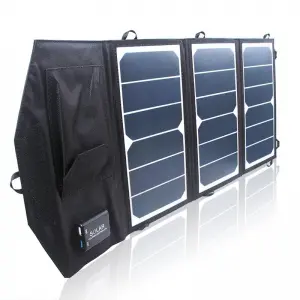Solar panels have become a popular choice for homeowners in recent years as the world grapples with the need for sustainable energy. Solar panels harness the sun’s energy to generate clean and renewable electricity. While the environmental benefits of solar panels are widely recognized, many people wonder if they can actually reduce electricity bills. In this blog post, we explore the potential of solar panels to reduce electricity costs and gain insight into the economic benefits they provide.
Cost of solar panels:
Before delving into potential savings, it’s worth considering the initial investment in solar panels. Installing solar panels involves substantial upfront costs, including purchasing equipment and professional installation. However, it’s important to remember that the price of solar panels has dropped significantly in recent years, making them more accessible to homeowners. Additionally, several financial incentives such as tax credits and government rebates can significantly offset the initial costs.
Lower electricity bills:
Once the solar panels are installed, homeowners can start enjoying reduced electricity bills. The solar panels generate electricity during the day when the sun is shining, and any excess energy produced is stored in batteries or sent back to the grid. This surplus energy can be tapped at night or during cloudy periods, ensuring continuous power without relying solely on traditional power sources. As a result, homeowners can save significantly on their monthly electricity bills, and sometimes even eliminate them entirely.
Net Metering:
To learn more about how solar panels can help lower electricity bills, it’s crucial to explore the concept of net metering. Net metering is a billing mechanism that allows homeowners with solar panels to earn credits for the excess electricity they generate and contribute to the grid. These credits can be used during times when the solar panels are not producing enough power, such as at night. Net metering effectively means that homeowners only pay for the “net” electricity consumed from the grid, resulting in significant savings.
Long-term financial benefits:
Investing in solar panels not only reduces immediate electricity bills, but also brings long-term financial benefits. First, solar panels have a long lifespan, typically lasting 25 to 30 years. During this time, homeowners can enjoy ongoing power savings, eventually recouping the initial investment and potentially saving thousands of dollars. Second, electricity prices are likely to rise in the future as the world shifts toward renewable energy. By adopting solar power, homeowners can protect themselves from the rising costs of conventional electricity.
Impact on the environment:
While this blog focuses on the economics of solar panels, it must be acknowledged that they have a profound impact on the environment. Solar panels provide a clean and sustainable energy alternative that can significantly reduce carbon emissions. By harnessing the power of the sun, every homeowner can do a great job in fighting climate change and promoting a greener future for the planet.
Solar panels have proven to be a reliable and cost-effective way to reduce your electricity bills. As technology improves and costs fall, the financial advantages of installing solar panels are becoming more accessible to homeowners. The combination of lower electricity bills, net metering, long-term economic benefits, and positive environmental impact make solar panels an attractive investment. Consider exploring solar panel options that can not only reduce your electricity bills, but also bring us one step closer to a sustainable and clean energy future.
Post time: Aug-06-2023
